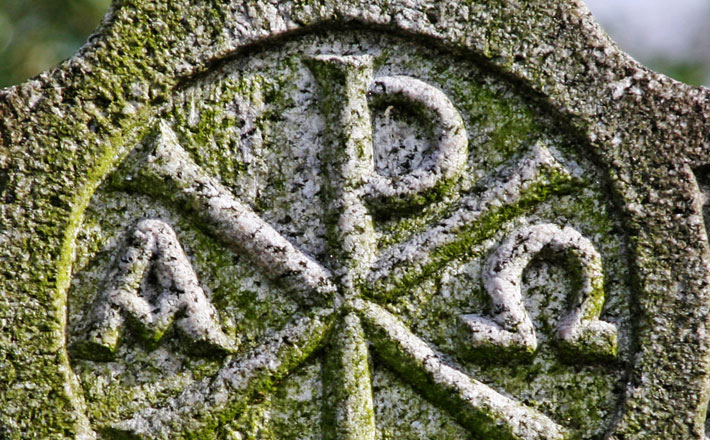Commentary on Revelation 22:12-14, 16-17, 20-21
“Surely, I am coming soon.” Thus the New Testament draws to a close.
Do we believe it? Do we live as if Jesus’ return was imminent? That is, do we follow the story to the end and hold tightly to this last canonical promise? After so much time, many of us have lost hold of this hope, felt this promise slip through our fingers as the years go by. But the promise is certain as Revelation closes. How can we embrace anew this last promise?
Revelation closes with a litany of short summaries. They appear at first glimpse to be aphoristic thoughts linked together with little structure. However, taken together, they encapsulate and summarize the theological convictions underwriting the visionary journey through which Revelation has just led us.
God’s Promises Are Sure
First, John reaffirms the underlying conviction of the whole book. God is faithful and just. God’s promises will be kept. God’s faithful followers will not be ravaged by the cruelties of this world, for God will surely deliver them and us. Despite all evidence to the contrary, Jesus is coming and soon. How do we know this? Revelation declares this surety, for such faithfulness is characteristic of God (see Revelation 4).
Moreover, as Jesus declares the breadth of his power in verse 13, we are reminded of the paradoxical ways such power was displayed in Revelation 5. There, Jesus was a fierce lion but also a broken lamb. Unlike the rules of the rest of the world, true power is the inheritance of the weak, the frail; those crushed by the powerful of this world. The crown of Alpha and Omega are not mere inheritances granted to Jesus as the Son of God but achieved through the blood of the lamb.
God’s Justice is Graceful, God’s Grace is Just
If God’s promises are sure, what does this mean for all of us? Verse 14 evokes three key images. First is the innumerable gathering of peoples from every corner of the world recorded in Revelation 7:9-17. Notice that in a book so adept with numbers and counting, this is the one time John’s census-taking hits a roadblock. He can count the 144,000 immediately preceding this image and yet finds a crowd beyond counting of faithful seekers after God.
Second is the image of the tree of life that draws us to the beginning, to the narratives of the opening chapters of Genesis. That tree of life now finds root in the holy city of Jerusalem and all who are there taste its life-giving fruit. Last, we are reminded of the gates of this magnificent city, gates found on massive, impregnable walls. And yet these gates remain flung open, unafraid of external threats (see Revelation 21:25).
And yet there remains some outside those walls, those who do not or cannot choose to enter a sacred city made clean, whole, and just by the ruler of all things. Verse 15 is excised from the lectionary reading but vital to a full understanding of Revelation’s message. Without justice, God cannot be graceful. Without grace, God’s justice is empty. John does not avert its eyes from the evils that populate the world and the ways those evils inflict the powerless. God’s grace requires the just rejection of such forces of death and destruction.
A God We Can Trust
To imagine that there is any power beyond the Roman Empire is bold, requiring a huge leap of faith. To imagine that the pain and suffering that characterized the lives of so many in antiquity would be wiped away in the arms of a loving God is bold, requiring a huge leap of faith. To confess that God would not swerve from God’s promises is bold faith. It is precisely this faith in God that brings us to the end of this book. It is precisely faith in Jesus’ return that draws these Christians into a promised future.
Now, it is our turn. Can we trust in God and God’s promises? Can we look forward to Jesus’ return in hope and expectation, not trepidation? In short, can we have faith today?
Revelation can help people of faith develop an imagination and hope that answers these questions affirmatively. Revelation can help us if we can but draw our eyes from the dazzling visions that dot this book for a moment and see that behind them all is a simple but life-altering hope in a God that calls us all. That hope resonated in the seven churches that received this powerful book. It can still be true for us today. We too can look to Jesus and trust he is coming soon.


May 12, 2013